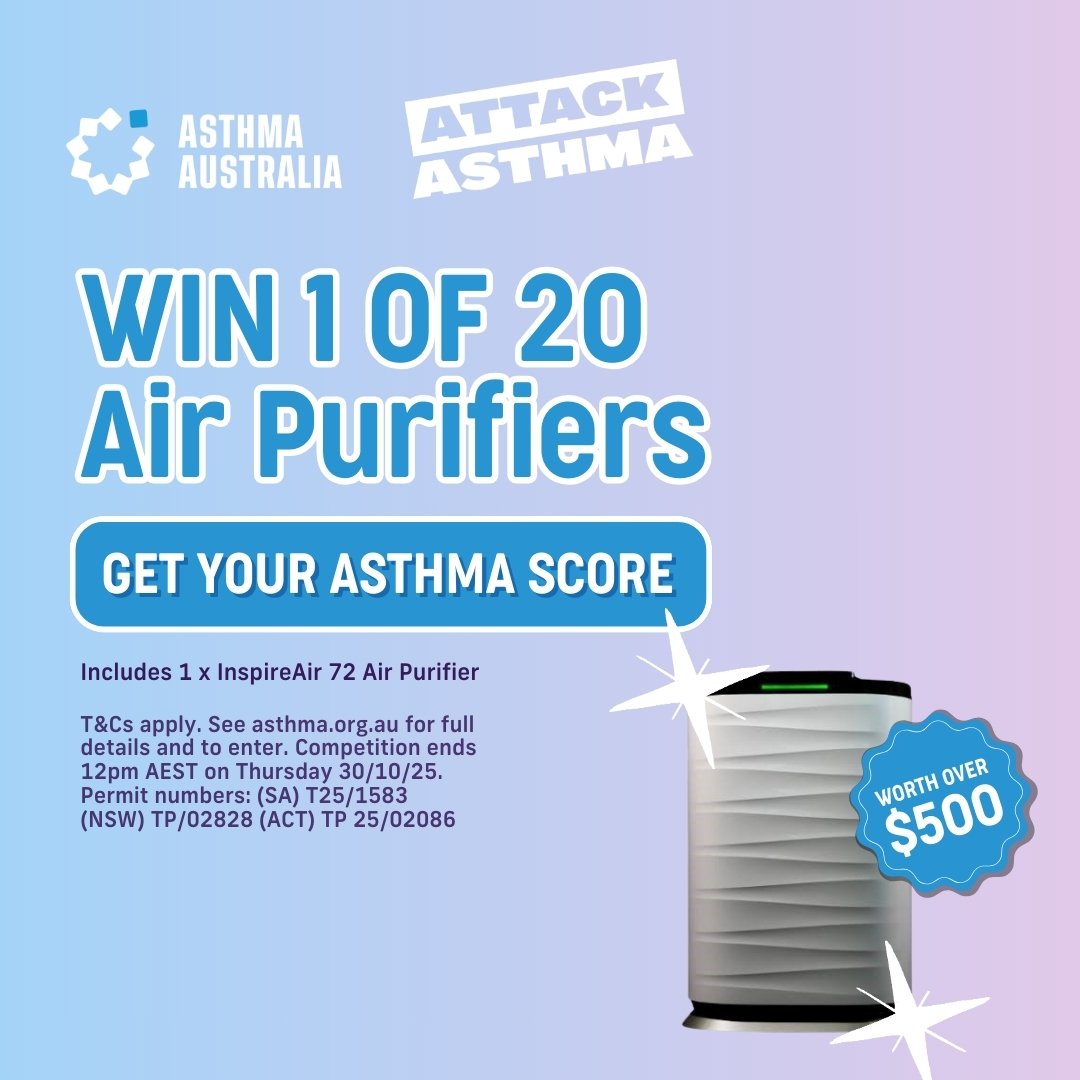With winter in full swing, RSV (Respiratory Syncytial Virus) cases have now hit about 100,000 infections across the country, a higher number than for this time last year. Asthma Australia is urging people with asthma to proactively manage their condition due to the risk of acute asthma attacks and virally-induced asthma hospitalisations.
RSV is a common and very contagious virus. In most people it can present with symptoms similar to the common cold, including runny nose, cough, sore throat and fever. Most people recover within 10 days. For people with asthma, however, the virus can pose a major risk, inflaming the airways and leading to acute asthma attacks.
Between 2016 and 2019, there were more than 115,000 hospitalisations with an RSV diagnosis in Australia. Approximately 75 per cent were of children aged less than five years. RSV is thought to be responsible for the development of 22 per cent of asthma cases in children under 5 years and up to 27 per cent of asthma in children aged 5-11 years.
Asthma Australia Medical Director Professor John Blakey said “Older adults or those with chronic conditions like asthma are more likely to have complications of RSV, such as a secondary pneumonia. Although more kids are admitted to hospital, adults stay in hospital longer and are far more likely to die of RSV than children.”
He is encouraging people with asthma to plan ahead of the seasonal change, to visit their doctor to update their Asthma Action Plan and organising appropriate vaccinations.
Dr Blakey said, “Viruses pose a major risk to people with asthma, triggering acute asthma attacks and leading to complications. The airways in people with asthma don’t recognise or respond to viruses in the same way as people without the condition.
“This difference is much greater when asthma inflammation is not well controlled. That’s why preventive medication is so important, it helps keep the airways in better condition and reduces the risk of viruses triggering severe damage.
“People with asthma are at much higher risk of breathing issues and prolonged symptoms of flu and other respiratory viruses. They are also at risk of deteriorating with severe wheeze or pneumonia.
“In addition to taking care of yourself, ensure kids are definitely recovering before sending them back to school and check in with older relatives more often.
“Respiratory viral infections like RSV don’t just exacerbate existing asthma, RSV and rhinovirus are a risk factor for developing asthma.
“We don’t want to see people with asthma in our hospitals this season. If you have asthma, or you’re a parent and think you need more help with your child’s asthma before speaking to a doctor, call Asthma Australia on 1800 278 462 for information and support.”
Asthma Australia advises that people with asthma should also try to protect themselves from catching respiratory viruses by ensuring their vaccinations are up to date, increasing hand hygiene by washing regularly, wearing masks in crowded places (where possible) and avoiding contact with other people who have respiratory symptoms, even if mild.
ENDS
For more information:
Contact Trinity Frederick, 0413 992 282





 1800 278 462
1800 278 462



